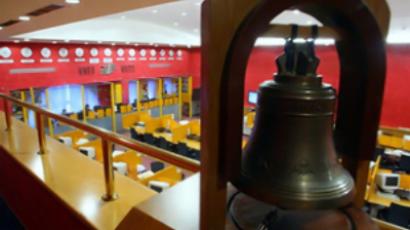UK needs to look more closely at Russian investment
Prince Michael of Kent says that British firms should look closer at investing in Russia, but the UK ambassador says Britain doesn’t water down legal issues for commercial expediency.
An oil and gas refinery owned by a small English firm in Russia’s south was destined to fail – the company lacks top-level connections. The project’s in an unfamiliar region and the Russian government is wary of foreign investment in energy, creating ‘strategic sector’ restrictions that choke interest. The plant also needs connection to the national gas network, which the federal antimonopoly watchdog admits Gazprom has little incentive to open to third parties.
But on Tuesday, Prince Michael of Kent, the patron of the Russo-British Chamber of Commerce still opened the plant on schedule.
“The whole view of England towards Russia is a very foggy one. And unless you come, as I have been lucky enough to do over the years, and see for yourself how they work, you don’t really pick up very much of an idea.”
The plant is a rare success story. Russian funds took in a laughable $100,000 investment for the week to Wednesday. Rival emerging economies Brazil gained $58 million, India $303, and China $502 million. Western corporations may salivate at the riches in Russia’s window, but they remain scared of coming in.
And the situation with Russia’s top foreign investor now threatens to get worse. New British Foreign Secretary William Hague unveiled a tough new international code of conduct last week, saying human rights will be at the core of UK foreign policy.
In an RT interview, Anne Pringle, the United Kingdom’s ambassador to Russia insisted she’ll press Moscow over issues like the murder of Alexander Litvinenko and Britain’s refusal to extradite Boris Berezovsky, even if it damages trade between the two states.
“On issues around a murder case, extradition, we do not water down our issues for political or commercial expediency. That remains our position, and the Foreign Secretary supports that.”
Russia’s leader Dmitry Medvedev says he wants more Western investors, but sweeteners such as tax breaks and equal access to infrastructure so far remain thin on the ground.













